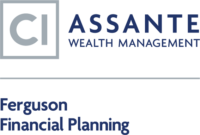Financial Planning: In Your 70s and Beyond

Your successful career has led you to your 70s, a time when financial planning takes on renewed importance. Now is the perfect moment to review your retirement strategy, ensure your estate plans are in order, and make informed decisions about your financial future.
We understand that financial planning can feel overwhelming, but we’re here to simplify the process for you. In this article, we will discuss several key areas that require your attention in your 70s and beyond. By implementing the strategies we present, you can secure your retirement income, protect your legacy, and enjoy peace of mind knowing your financial affairs are in order.
Maximizing Retirement Income
As you transition into retirement, maximizing your retirement income becomes a top priority. One crucial step is to review your registered retirement savings plan (RRSP) and determine the most advantageous time to convert it into a registered retirement income fund (RRIF). By converting your RRSP, you can benefit from tax deferral while taking out a regular stream of income to support your lifestyle.
Additionally, explore the potential benefits of contributing to a tax-free savings account (TFSA). While TFSAs do not provide an upfront tax deduction, they allow your investments to grow tax-free. Withdrawals from a TFSA are also tax-free, making it an attractive option to supplement your retirement income.
Another avenue to consider is the Old-Age Security (OAS) and Canada Pension Plan (CPP). Ensure that you understand the eligibility criteria and strategize on when to begin receiving these benefits. Delaying the start of OAS and CPP can result in higher monthly payments, providing you with increased financial security in the long run.
Cash Flow In Retirement
As you reach a certain age, the Canadian government mandates that you begin withdrawing funds from your registered retirement savings plan (RRSP) and registered retirement income fund (RRIF). These withdrawals are an essential part of managing your retirement income and ensuring financial stability during your golden years. Understanding how to effectively handle your retirement withdrawals is crucial to optimizing your income and minimizing tax burdens. Here are some key strategies to consider:
- Start Withdrawals at the Right Time: In Canada, the government requires you to convert your RRSP into a RRIF by the end of the year in which you turn 71. Once you’ve made this conversion, you can begin taking withdrawals from your RRIF. It’s important to carefully assess your financial situation and determine the most advantageous time to start withdrawing funds based on your income needs and tax considerations.
- Plan Withdrawal Amounts Wisely: When deciding how much to withdraw from your RRIF, consider factors such as your lifestyle expenses, other sources of income, and potential tax implications. It’s recommended to develop a detailed retirement budget and consult with a financial advisor who can help you calculate a sustainable withdrawal rate that aligns with your long-term financial goals.
- Utilize Income Splitting: If you have a spouse or common-law partner who is in a lower income tax bracket, explore the possibility of income splitting. By allocating a portion of your retirement withdrawals to your partner’s income, you can potentially reduce the overall tax burden on your withdrawals and optimize your tax efficiency.
- Optimize Tax-Efficient Investments: Choosing tax-efficient investment options can help minimize the tax impact of your retirement withdrawals. Consider investing in tax-efficient mutual funds or focusing on investments that generate capital gains or dividends rather than interest income, which is taxed at a higher rate. Additionally, make use of your Tax-Free Savings Account (TFSA) to shelter investment growth and withdrawals from taxation.
Reviewing Estate Plans and Beneficiary Designations
As you progress through your 70s and beyond, reviewing and updating your estate plans becomes essential. Start by reviewing your will and ensuring it reflects your current wishes. Consider any changes in your family situation, such as births, deaths, or changes in marital status, and adjust your will accordingly. It’s also important to review your beneficiary designations for retirement accounts, insurance policies, and other assets to ensure they align with your wishes.
Take this opportunity to evaluate your legacy goals. Do you have charitable organizations you would like to support? Consider incorporating charitable giving strategies into your estate plans. By establishing charitable trusts, donor-advised funds, or bequests in your will, you can leave a lasting impact on causes that are important to you.
Longevity and Healthcare Expenses
With increased life expectancy, it’s important to plan for potential healthcare expenses that may arise in your 70s and beyond. Long-term care costs, medical treatments, and other healthcare needs can have a significant impact on your retirement savings.
One strategy to protect against these expenses is long-term care insurance. This type of insurance can provide coverage for services such as nursing home care, assisted living, or in-home care. By incorporating long-term care insurance into your financial plan, you can mitigate the financial burden of these potential healthcare costs.
Aging in Place or Considering Senior Living Options
As you age, it’s important to consider your living arrangements and evaluate whether aging in place or transitioning to a senior living community is the right choice for you. Aging in place refers to remaining in your current home and making necessary modifications to accommodate your changing needs.
If you decide to explore senior living options, conduct thorough research to find a community that aligns with your preferences, lifestyle, and budget. Consider factors such as the level of care provided, available amenities, social activities, and the overall atmosphere of the community. Transitioning to a senior living community can offer benefits such as increased social interaction, reduced home maintenance responsibilities, and access to additional healthcare services.
Conclusion
In your 70s and beyond, financial planning plays a crucial role in ensuring a secure retirement and protecting your legacy. By maximizing retirement income, reviewing estate plans, considering charitable giving strategies, planning for estate taxes, managing required minimum distributions, and addressing healthcare expenses, you can navigate this stage of your financial journey with confidence.
At Ferguson Financial Planning, we are here to help you meet your investment goals and provide the guidance you need. We welcome your questions and invite you to schedule a no-obligation discovery consultation to discuss our approach and determine if it is the right fit for you. Your financial future is our priority, and we are committed to working with you to grow and protect your wealth using our Wealth Plan formula.
We are here to help you meet your investment goals and we welcome your questions. We work with business professionals, executives, and families to grow and protect their wealth using our Wealth Plan formula. To discuss our approach and if it is the right fit for you, we invite you to schedule a no-obligation discovery consultation.

